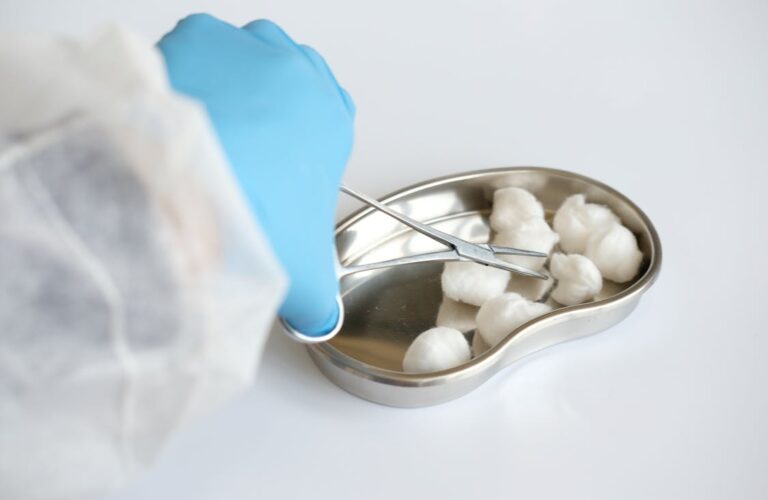Due to its potential advantages for weight reduction and treating a number of medical issues, the keto diets has grown in popularity in recent years. It is a high-fat, low-carbohydrate diet. The possible negative consequences of the keto diets on renal function, however, are a source of worry.
An increase in the synthesis of ketones is one possible negative effect of the keto diets on the kidneys. When the body is in a state of ketosis—when it is using fat as fuel rather than glucose from carbohydrates—ketones are created. Due to dehydration and an increase in uric acid production, high amounts of ketones can be bad for the kidneys.
An increase in protein intake is another potential negative effect of the keto diets on the kidneys. The increased protein content of the ketogenic diet may put more strain on the kidneys. If the kidneys are not working correctly, this can lead to more damage and perhaps even renal failure.
Additionally, the keto diets may lower the body’s calcium levels, increasing the risk of kidney stones. Small, hard deposits called kidney stones can be painful and uncomfortable because they develop in the kidneys.
It is significant to emphasise that further investigation is required in order to completely comprehend the long-term consequences of the keto diets on renal function. It is advised to see a healthcare professional before beginning the keto diets if you have any worries about how the diet may affect the condition of your kidneys.
What Are the Side Effects of the Keto Diets on the Kidney?
A popular high-fat, low-carbohydrate diet called the ketogenic diet may help people lose weight and treat some medical issues. The ketogenic diet may have some unfavourable consequences on the kidneys, though.
An increase in the formation of ketones, which can damage the kidneys at high levels, is one possible adverse effect. When the body is in a state of ketosis—when it is using fat as fuel rather than glucose from carbohydrates—ketones are created. Dehydration and an increase in uric acid synthesis brought on by high amounts of ketones can harm the kidneys.
A rise in protein intake is yet another potential negative effect. The increased protein content of the ketogenic diet may put more strain on the kidneys. If the kidneys are not working correctly, this may result in further damage and perhaps renal failure.
The keto diets may also lower the body’s calcium levels, increasing the risk of kidney stones. Small, hard deposits called kidney stones can be painful and uncomfortable because they develop in the kidneys.
It is significant to emphasise that further investigation is required in order to completely comprehend the long-term consequences of the keto diets on renal function. It is advised to see a healthcare professional before beginning the keto diets if you have any worries about how the diet may affect the condition of your kidneys.

How to Mitigate the Side Effects of the Keto Diets on the Kidney?
There are numerous strategies to reduce the risks if you are on a ketogenic diet and worried about possible negative effects on your kidney function:
Keep hydrated: Drinking lots of water will help avoid dehydration and lower the danger that high amounts of ketones will harm your kidneys.
Watch your protein intake: A ketogenic diet requires you to consume a certain amount of protein, but not too much. To discover how much protein is right for you, speak with a qualified nutritionist or member of the medical profession.
Eat calcium-rich meals: Eating foods with a high calcium content will help prevent calcium levels from dropping and lower the risk of kidney stones. Leafy greens, dairy products, and fortified meals are all excellent sources of calcium.
Limit salt consumption: While on a ketogenic diet, it’s critical to keep your salt intake to a minimum since too much salt might raise the risk of kidney damage.
Get regular kidney function testing: Speak to your healthcare practitioner about scheduling regular kidney function tests if you have pre-existing kidney issues or are worried about how the keto diets may affect the health of your kidneys.
It’s vital to keep in mind that not everyone should follow the ketogenic diet, particularly people who already have renal problems. Always with a healthcare professional before beginning a new diet or fitness regimen.
Keto Diets Kidney Issues
The ketogenic diet is a well-known high-fat, low-carbohydrate diet that has been linked to a number of health advantages, including better blood sugar management and weight loss. Concerns exist, nevertheless, regarding the ketogenic diet’s possible effects on renal function.
An increase in the generation of ketones is one possible problem with the keto diets. When the body is in a state of ketosis—when it is using fat as fuel rather than glucose from carbohydrates—ketones are created. Due to dehydration and an increase in uric acid production, high amounts of ketones can be bad for the kidneys.
An rise in protein consumption is another problem. The increased protein content of the ketogenic diet may put more strain on the kidneys. If the kidneys are not working correctly, this may result in further damage and perhaps renal failure.
Additionally, the keto diets may lower the body’s calcium levels, increasing the risk of kidney stones. Small, hard deposits called kidney stones can be painful and uncomfortable because they develop in the kidneys.
It is crucial to remember that the ketogenic diet’s possible effects on kidney function are still being researched, and additional studies are required to properly comprehend the long-term implications. It is advised to see a healthcare professional before beginning the keto diet if you have any worries about how the diet may affect the condition of your kidneys. To reduce risks, they could advise changing your diet or having routine blood tests to evaluate your kidney function.
Side Effects of Keto Diet on Kidney
A popular high-fat, low-carbohydrate diet called the ketogenic diet may help people lose weight and treat some medical issues. The ketogenic diet may have some unfavourable consequences on the kidneys, though.
An increase in the formation of ketones, which can damage the kidneys at high levels, is one possible adverse effect. When the body is in a state of ketosis—when it is using fat as fuel rather than glucose from carbohydrates—ketones are created. Dehydration and an increase in uric acid synthesis brought on by high amounts of ketones can harm the kidneys.
A rise in protein intake is yet another potential negative effect. The increased protein content of the ketogenic diet may put more strain on the kidneys. If the kidneys are not working correctly, this may result in further damage and perhaps renal failure.
The keto diet may also lower the body’s calcium levels, increasing the risk of kidney stones. Small, hard deposits called kidney stones can be painful and uncomfortable because they develop in the kidneys.
It is significant to emphasise that further investigation is required in order to completely comprehend the long-term consequences of the keto diet on renal function. It is advised to see a healthcare professional before beginning the keto diet if you have any worries about how the diet may affect the condition of your kidneys.
Kidney Health and Keto Diet
The ketogenic diet is a well-known high-fat, low-carbohydrate diet that has been linked to a number of health advantages, including better blood sugar management and weight loss. However, it’s crucial to take into account how the keto diet could affect renal function.
An increase in the generation of ketones is one issue with the keto diet. When the body is in a state of ketosis—when it is using fat as fuel rather than glucose from carbohydrates—ketones are created. Due to dehydration and an increase in uric acid production, high amounts of ketones can be bad for the kidneys.
An rise in protein consumption is another issue. The increased protein content of the ketogenic diet may put more strain on the kidneys. If the kidneys are not working correctly, this may result in further damage and perhaps renal failure.
Additionally, the keto diet may lower the body’s calcium levels, increasing the risk of kidney stones. Small, hard deposits called kidney stones can be painful and uncomfortable because they develop in the kidneys.
Before beginning the keto diet, it’s crucial to discuss your pre-existing kidney issues with your doctor. To reduce risks, they could advise changing your diet or having routine blood tests to evaluate your kidney function.
However, the ketogenic diet may be secure and perhaps even advantageous for those with healthy kidneys. Maintaining regular hydration is crucial, and talking to a doctor or registered dietitian about how much protein and other nutrients are right for you personally is also critical.
Kidney Function and Keto Diet
The keto diet is a high-fat, low-carb diet that has become popular because of its promise for improved blood sugar management and weight loss. Concerns exist, nevertheless, regarding the ketogenic diet’s possible effects on renal function.
An increase in the generation of ketones is one possible problem with the keto diet. When the body is in a state of ketosis—when it is using fat as fuel rather than glucose from carbohydrates—ketones are created. Due to dehydration and an increase in uric acid production, high amounts of ketones can be bad for the kidneys.
An rise in protein consumption is another problem. The increased protein content of the ketogenic diet may put more strain on the kidneys. If the kidneys are not working correctly, this may result in further damage and perhaps renal failure.
It is crucial to remember that further study is required to properly understand the long-term implications of the keto diet, which may have an influence on kidney function. The ketogenic diet may be secure and perhaps advantageous for those with healthy kidneys. Maintaining regular hydration is crucial, and talking to a doctor or registered dietitian about how much protein and other nutrients are right for you personally is also critical.
Before beginning the keto diet, it is advised to see a healthcare professional if you have a history of renal disease. To reduce risks, they could advise changing your diet or having routine blood tests to evaluate your kidney function.


